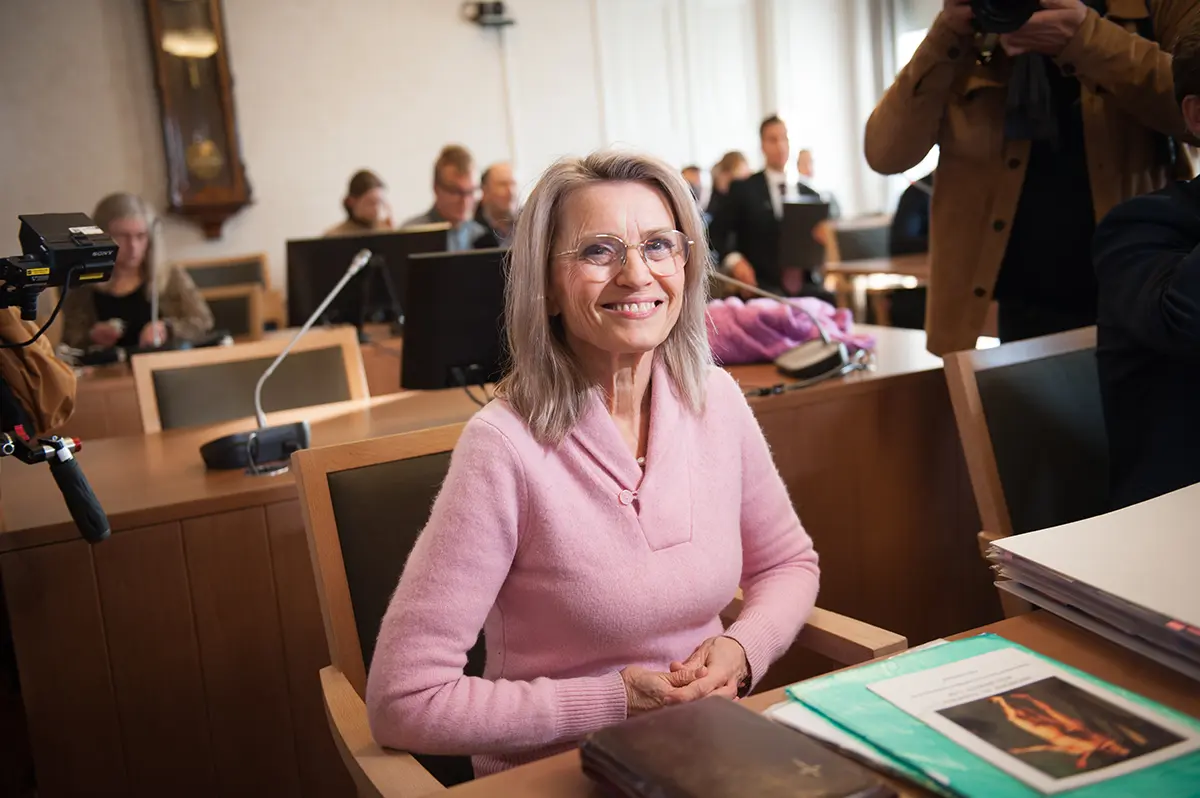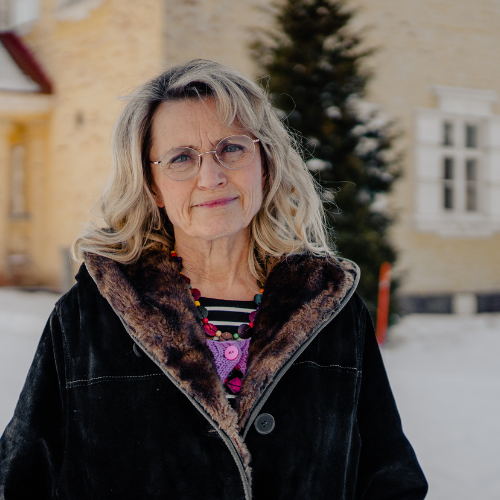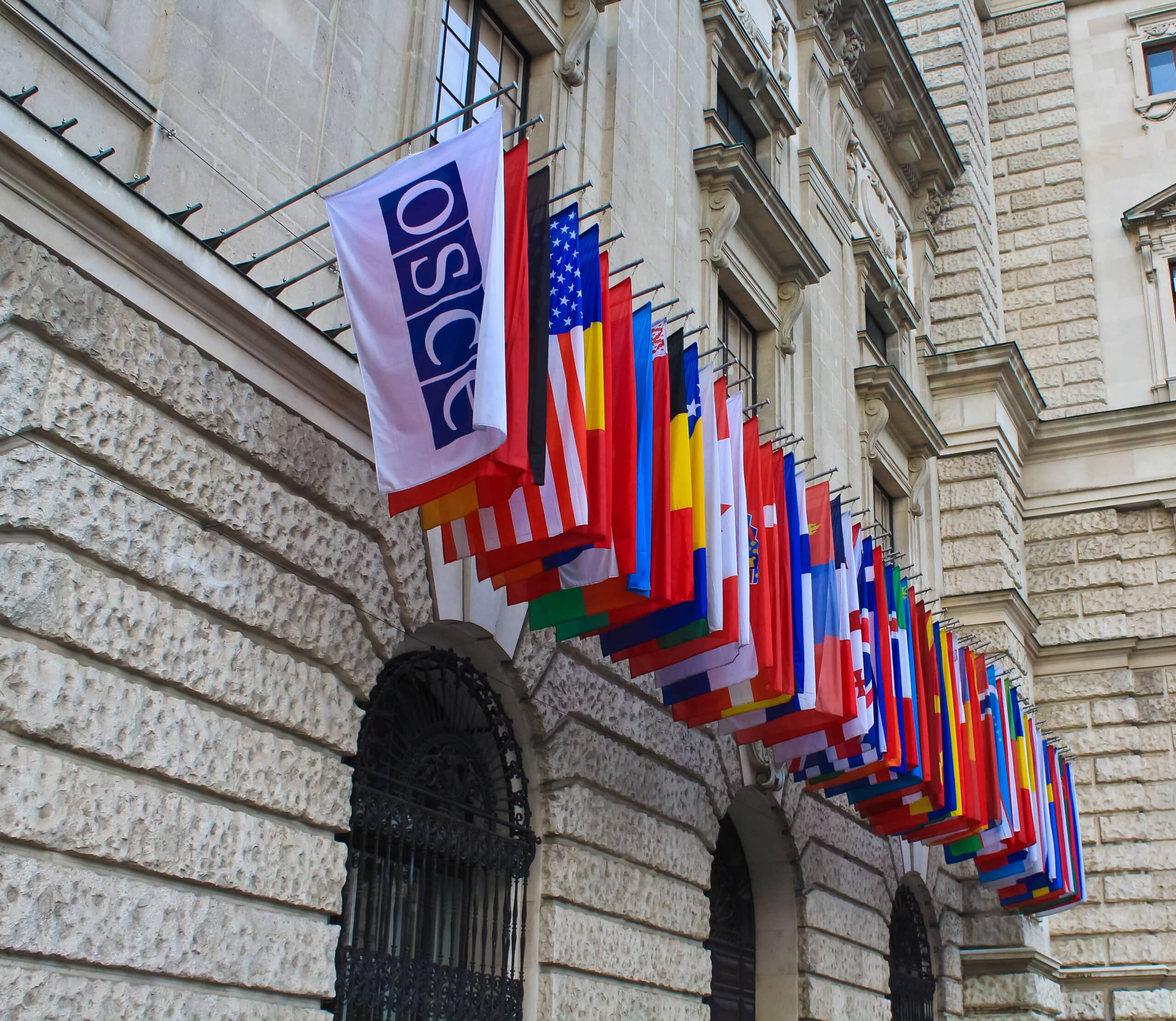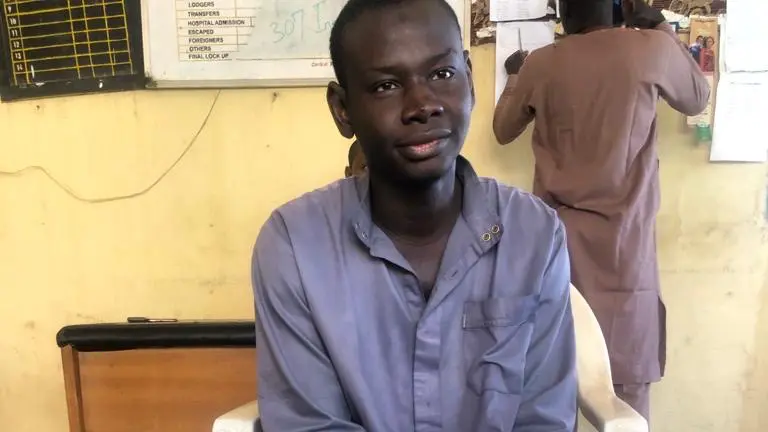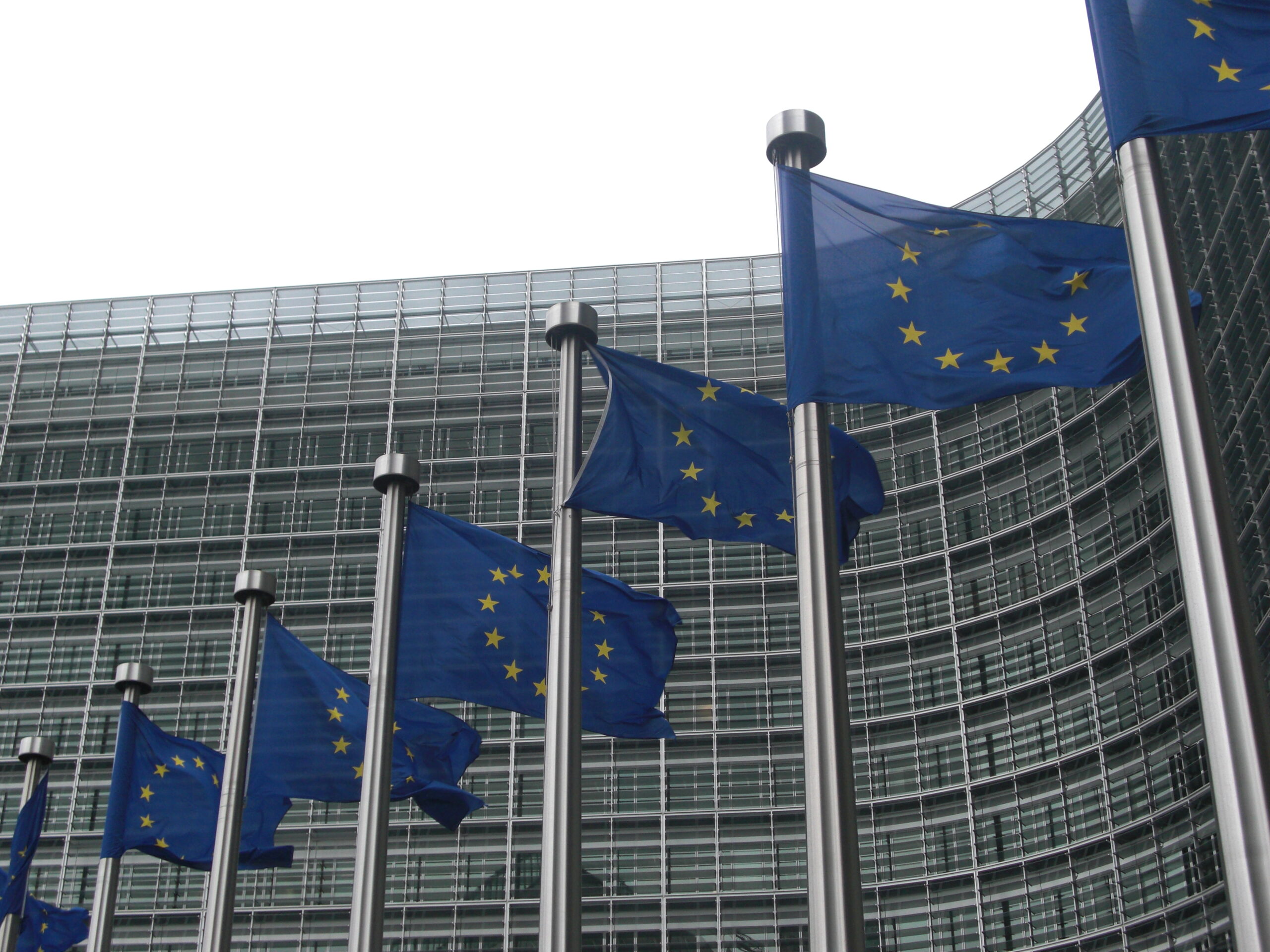Prosecution seeks conviction for quoting the Bible as Finland’s highest court hears final appeal
Continue readingScottish politician seeks to criminalise “influencing” a person’s decision about assisted suicide
- Scottish Green Party’s Patrick Harvie proposes a censored “buffer zone” around facilities where assisted suicides might take place, preventing family members or concerned individuals from changing a person’s mind
- Move echoes abortion “buffer zones” law enacted in Scotland last year, under which a grandmother was arrested for offering a conversation

EDINBURGH (29 October 2025) – A Scottish parliamentarian and member of the Health Committee, Patrick Harvie MSP, has proposed an amendment to Scotland’s controversial “assisted suicide” bill that would criminalise discussion of suicide prevention within a large, undefined public area surrounding any building where an assisted suicide might take place.
The vague proposal would forbid any attempts to “influence” a person’s decision to undergo an assisted suicide, such as through conversation with a family member or the display of a suicide prevention poster.
"It's unthinkable that Scots should be banned on certain streets from offering hope and encouraging someone to choose life, not suicide."
- Lois McLatchie Miller, ADF International
Almost half of those who opted for assisted suicides in Oregon cited concerns about being a perceived “burden on family, friends or caregivers” as a driver for their decision to end their lives, according to public health data released in 2023.
Concerns for Free Speech
The move echoes the “buffer zones” law put in place in Scotland last year, which criminalises any attempts to “influence” a person’s decision to access abortion services within 200m of every hospital.
In August, 75-year-old grandmother Rose Docherty became the first person to be arrested under the abortion “buffer zones” law after she peacefully offered consensual conversation, holding a sign reading “Coercion is a crime, here to talk, only if you want”. The U.S. State Department condemned the arrest as “another egregious example of the tyrannical suppression of free speech happening across Europe.” ADF International is supporting her legal defence as she faces trial in December.
At the Munich Security Conference in February, U.S. Vice President J.D. Vance criticised the Scottish buffer zones law, summarising that “free speech, I fear, is in retreat”.
Reacting to Harvie’s proposal, Lois McLatchie Miller from ADF International said:
“It’s unthinkable that Scots should be banned on certain streets from offering hope and encouraging someone to choose life, not suicide.
How will this impact a doctor’s choice to have a suicide-prevention charity’s poster in their window? How will this impact important conversations between loved ones, eager to convince an elderly wife or a parent that they are not a burden, but a valuable member of the family?
“Once the principle of a censorial ‘buffer zone’ is approved for one issue, it can easily multiply to more and more issues. We’ve already seen loosely worded abortion ‘buffer zone’ rules be used to arrest a grandmother simply for offering to chat. Now the government seeks to apply the same vague, broad rules to ban speech about assisted suicide. What could be next? Banning parents from “influencing” their child outside a gender clinic? Banning dissenting speech about foreign regimes around certain embassies? Censorship is always a slippery slope.”
Images for free use in print or online in relation to this story only
PICTURED: Rose Docherty, Lois McLatchie Miller
TOMORROW: Finnish Politician Faces Supreme Court for Bible Tweet
Tomorrow, the Supreme Court of Finland will hear the landmark case of Finnish parliamentarian Dr. Päivi Räsänen and Bishop Juhana Pohjola, who stand accused of “hate speech” for publicly expressing their Christian beliefs.
Continue readingMEDIA ADVISORY: Finnish Parliamentarian on Trial for Tweet to Address Post-Trial Press Conference, October 30th
Räsänen will be available for questions at an online press conference hosted by ADF International on Oct 30th at 16:00 CET (11:00 EDT)
Continue reading“They Took Our Children”: Christian Parents Bring Sweden Before European Court of Human Rights After Almost 3 Years’ Separation from Daughters
Two daughters of a Christian couple in Sweden were seized by the state after their older daughter made a false report at school over her parents’ refusal to give her a phone and allow makeup, prompting allegations of “religious extremism,” even though she promptly retracted.
Continue readingTürkiye Labels Christians as ‘National Security Threats’ to Justify Mass Expulsions
Speaking today at the OSCE Warsaw Human Dimension Conference, Lidia Rieder, Legal Officer for ADF International warned that the government of Türkiye is systematically targeting Christians under the guise of “national security,” expelling hundreds of foreign believers and leaving local congregations without spiritual leadership.
Continue readingFollowing Prime Minister’s Rejection, Egyptian Christians Petition Government in Case to Recognize Easter Sunday as a Public Holiday
First hearing held in case to officially recognize Easter; presents new opportunity for Egypt to advance religious freedom protections, as petitioners seek to end requirement for millions of Christians to work or attend school on Easter Sunday.
ADF International supports the petition to protect Egyptian Christians’ right to worship on Easter in an ancient cradle of Christianity.
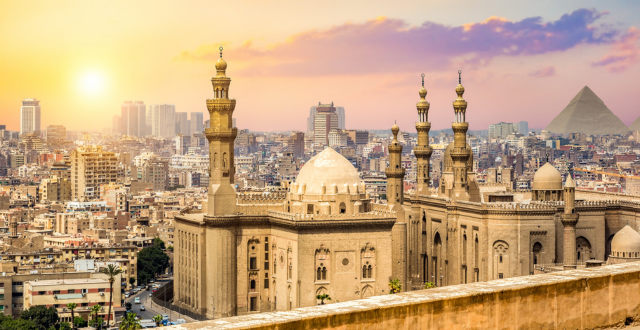
CAIRO — 13 OCTOBER. Over the weekend, Egypt’s Administrative Court heard an appeal challenging the Prime Minister’s denial of a petition calling for Easter Sunday to be recognized as an official public holiday. The petition, submitted by lawyers and citizens from diverse religious backgrounds and supported by ADF International, urges the government to designate Easter—one of the most important and widely celebrated days on the Christian calendar—as a public holiday. The case will now move forward to the State Commissioners Authority, who will consider the matter on January 17, 2026.
Egypt has one of the oldest Christian communities in the world, and Christians continue to make up over 10% of the country’s population. Despite the estimated 10 million Christians living in Egypt, Easter Sunday is not currently recognized as a public holiday. Because Sunday is a regular working day in the country, rather than part of the weekend, many Christians are forced to attend work or school on Easter Sunday.
“This petition represents an important opportunity to advance the right of Christians to freely practice their faith in Egypt. For millions of Egyptian Christians, recognizing Easter as a public holiday would mean being able to fully observe one of the most sacred days of their faith without having to choose between work or school and their religious practices."
- Kelsey Zorzi, Director of Advocacy for Global Religious Freedom at ADF International
“For years, I’ve been forced to work on Easter Sunday. I’ve been denied the ability to attend church and celebrate with my family,” said one government employee at Egypt’s Ministry of Higher Education.
Even when accommodations are requested, they are often denied. As one Christian lawyer in Cairo explained, “I was required to appear in court on Easter Sunday. The judge refused to reschedule. I missed church and family traditions.”
Other religious holidays, including Orthodox Christmas and Muslim celebrations, are already officially recognized by the Egyptian government. The lack of recognition of Easter forces Christians to choose between observing their faith and fulfilling their professional or academic duties.
“This petition represents an important opportunity to advance the right of Christians to freely practice their faith in Egypt,” said Kelsey Zorzi, Director of Global Religious Freedom for ADF International. “For millions of Egyptian Christians, recognizing Easter as a public holiday would mean being able to fully observe one of the most sacred days of their faith without having to choose between work or school and their religious practices. It’s a meaningful step toward ensuring their rights are respected.”
The petition draws on both Egyptian constitutional provisions, such as the guarantees of religious freedom and equality under Articles 53 and 64, and Egypt’s obligations under international human rights treaties, including the International Covenant on Civil and Political Rights and the International Labour Organization’s Convention No. 111, which prohibits religious discrimination in employment. The historical precedent for recognizing Easter as a public holiday in Egypt dates back to the monarchy, which formally acknowledged and observed it as a holy day. Petitioners note that several other countries in the Middle East already recognize Easter, and that doing so in Egypt would mark an important step forward for religious freedom in the region.
“Recognizing Easter as a public holiday is essential because it removes a significant barrier for millions of Egyptian Christians who currently must choose between their faith and their work or education,” said Haytham Ereifej, attorney and representative of ADF International in the Middle East. “This change upholds their constitutional and international rights, ensuring equal treatment and respect for religious freedom across Egypt.”
ADF International is supporting this effort and will continue to advocate for the protection of religious freedom in Egypt and around the world.
Background
ADF International is committed to promoting religious freedom for Christians and other religious minorities in Egypt. Through engagement with local partners and international bodies, ADF International has consistently advocated for the rights of all Egyptians to freely choose, speak about, and live out their faith. Such rights are consistent with Egypt’s constitution, which explicitly prohibits discrimination on the basis of religion, as well as its commitments under numerous international treaties.
The petition to recognize Easter Sunday as a national holiday reflects a broader grassroots effort, supported by ADF International, to help build a culture of genuine religious equality in Egypt, where every citizen is free to live out their faith without penalty or restriction.
Yahaya Sharif-Aminu’s Supreme Court Outcome Will Shape Religious Freedom in Africa
The young Sufi Muslim’s ‘blasphemous’ WhatsApp message sparks an international outcry
Continue readingOne hundred experts write to European Commission warning EU legislation risks censoring global speech
- Letter calls on Commission to consult free speech experts as part of review into censorial Digital Services Act (DSA)
- Letter from free speech experts, which was coordinated by ADF International, comes after US Ambassador to EU and Google recently expressed concerns that DSA risks censoring American online speech
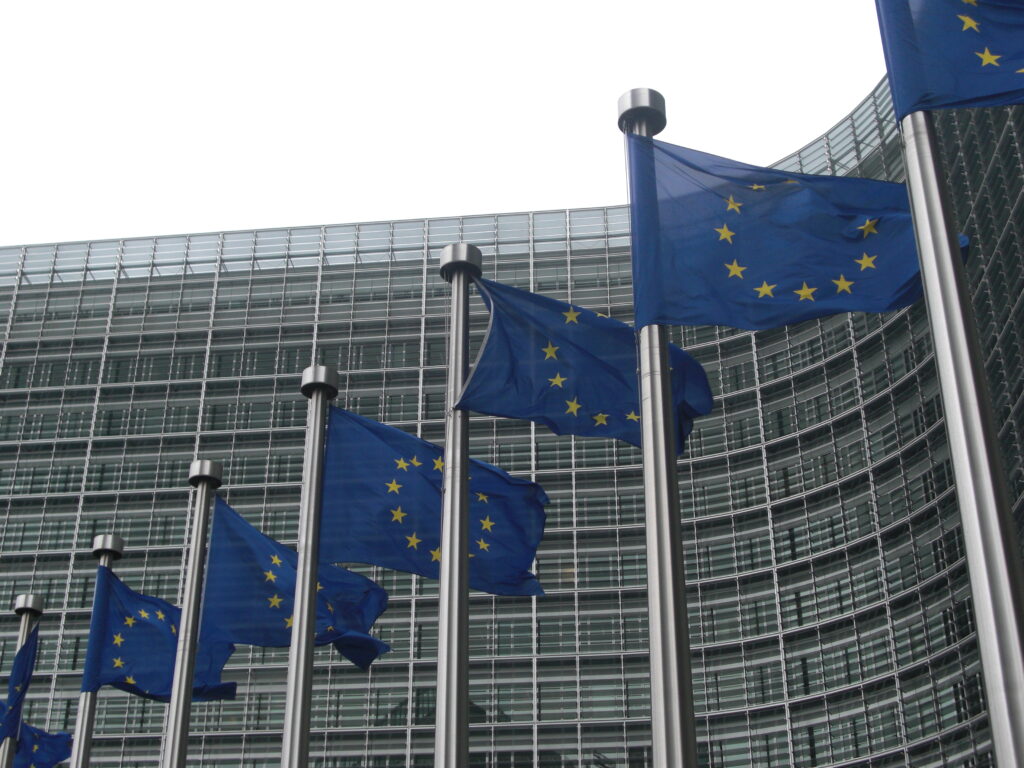
BRUSSELS (9 October 2025) – More than 100 free speech experts from around the world today wrote to the European Commission warning that an EU law risks censoring global speech online.
In a letter to the European Commission, the 113 experts, including a former VP of Yahoo Europe, a former US Senator, and politicians, academics, lawyers and journalists from around the globe, called on the Commission to consult free speech experts as part of its review into the EU’s Digital Services Act (DSA), which will take place by 17 November.
The letter, which was coordinated by free speech legal advocacy organisation ADF International, states: “[The DSA] constructs a pan-European censorship infrastructure with loosely defined boundaries and the potential to suppress legitimate democratic discourse…
“The wide definition of illegal content allows the most speech-restrictive provisions of one single EU country to be imposed as a standard across the entire Union, and potentially worldwide, effectively importing the lowest common denominator of expression.”
The letter added: “The broad definition of ‘illegal content’ in the DSA, combined with existing jurisprudence of the Court of Justice of the European Union (CJEU) opens the door to worldwide takedowns.”
Signatories include ADF International Executive Director Paul Coleman, President, CEO, and Chief Counsel of Alliance Defending Freedom Kristen Waggoner, former Vice President of Yahoo Europe Jean-Marc Potdevin, former US Senator and former US Ambassador-At-Large for International Religious Freedom Sam Brownback, Founder and General Secretary of the Free Speech Union Toby Young, former President of the American Civil Liberties Union Nadine Strossen, award-winning journalist and author Michael Shellenberger and Research Fellow at the Hoover Institution Ayaan Hirsi Ali.
Cross-party Members of the European Parliament (MEPs) also signed the letter, including ECR MEP Stephen Bartulica, EPP MEP Branko Grims, and Patriots MEP Virginie Joron, as well as McCormick Professor of Jurisprudence at Princeton University Robert P George, American philosopher and author Peter Boghossian, child protection advocate Chris Elston aka Billboard Chris and other experts from the UK, Europe, Latin America and the United States.
Read the full letter, see the full list of signatories and sign the public version of the letter here.
Opaque review process into DSA
The letter expresses concern over the European Commission’s opaque review process into the DSA and calls on the Commission to: “Conduct a comprehensive and inclusive consultation with independent experts in freedom of expression, constitutional law, and digital rights, ahead of the November review, inviting public comments.
“Publicly disclose the list of NGOs, civil society actors, and partner entities engaged in the review process, including the criteria and methodology used for their selection.
“Ensure that the review includes a rigorous legal analysis of the DSA’s compatibility with fundamental rights protections, especially under Article 11 of the Charter of Fundamental Rights of the EU, Article 10 of the ECHR, and Article 19 of the ICCPR.”
Concerns from US Ambassador to the EU
The experts’ letter to the European Commission comes after the US Ambassador to the EU Andrew Puzder last week expressed concern that the DSA risks censoring American citizens, and follows Google warning the DSA threatens American speech.
Ambassador Puzder last week said: “No President of either party, and I can tell you President Trump in particular, is going to tolerate a foreign government restricting the First Amendment fundamental free speech, free expression rights of American citizens, to an extent that the United States government can’t even regulate those rights.
“So we need to come to an understanding as to what’s happening with the Digital Services Act.”
Ambassador Puzder has also reportedly said the United States will make formal submissions under the European Commission’s review of its digital legislation.
The letter’s warning about the threat of global DSA censorship reinforces Ambassador Puzder’s and Google’s concerns.
Dr Adina Portaru, Brussels-based Senior Counsel, Europe for ADF International said:
“The European Commission claims the DSA will not censor speech and will merely create a safer online environment. In this letter, one hundred free speech experts vehemently disagree.
“The US Ambassador to the EU and Google recently expressed concern that the DSA threatens American online speech. This letter from experts reinforces these concerns and warns that the legislation threatens to impose an online censorship regime not just in the EU, but across the whole world.
“The Commission must urgently engage with these concerns in their review of the DSA, and act to ensure freedom of expression is protected online.”
French MEP and signatory of the letter Virginie Joron said:
“The French digital regulator ARCOM told me they believe the DSA allows them to censor any post anywhere in the world using the DSA. That means even an American citizen posting in Alabama could potentially have their online post taken down, even if the publication would be legal in the US.
“This already happened in 2023 after the Annecy terror attack in a playground in the South of France where a migrant from Syria stabbed four babies and toddlers. A reaction from a US citizen was taken down, as described in the report from the US Congress.”
As well as warning about the possibility of global takedown orders under the DSA, the letter also quotes the US House Judiciary Committee in highlighting another way the EU legislation risks censoring global online speech: “Because many social media platforms generally maintain one set of content moderation policies that they apply globally, restrictive censorship laws like the DSA may set de facto global censorship standards.”
Read more about the DSA here.
Images for free use in print or online in relation to this story only
(From left to right: Dr Adina Portaru, Brussels-based Senior Counsel, Europe for ADF International; French MEP Virginie Joron)
UN Expert Calls to Globally Prohibit Surrogacy in Landmark Report
- Ahead of her report presentation to the UN General Assembly, UN Special Rapporteur on Violence Against Women and Girls, Reem Alsalem, condemns surrogacy at high-level UN event, stating the practice commodifies women and children.
- ADF International co-presents at event hosted by Italian government; applauds the call to prohibit the practice globally.
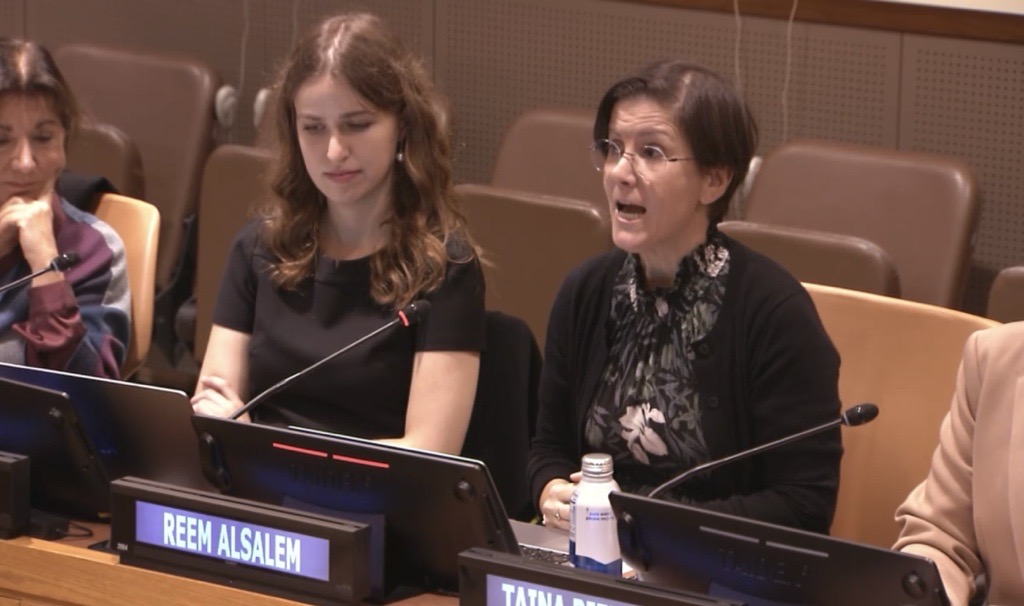
NEW YORK CITY (8 October 2025) – Today, the United Nations Special Rapporteur on Violence Against Women and Girls, Reem Alsalem, formally spoke out against the practice of surrogacy at a UN General Assembly event. She stated, “[Surrogacy] is clearly responsible for inflicting large-scale violence, abuse, and exploitation on women and children.” Alsalem is set to present her latest report on Oct. 10 before the UN General Assembly. In it, she calls for a global prohibition on all forms of surrogacy, warning that the practice is “characterized by exploitation and violence against women and children, including girls.”
The report calls on States to adopt a legally binding international instrument prohibiting all forms of surrogacy and urges immediate action to criminalize the commissioning of children and its facilitation by surrogacy agencies and clinics, ban its advertisement, protect women already engaged in surrogacy arrangements through legal support and psychosocial services, and ensure that children’s rights to identity, care, and protection are upheld.
“[Surrogacy] is clearly responsible for inflicting large-scale violence, abuse, and exploitation on women and children.”
- Reem Alsalem, UN Special Rapporteur on Violence Against Women and Girls
Hosted by the Government of Italy, the event comes amid growing international momentum to prohibit surrogacy. In 2024, Italy became the first country to prohibit surrogacy both within and outside its borders. Last month, Slovakia adopted a constitutional amendment prohibiting the practice.
“Surrogacy should not be prohibited only domestically, but it should also be addressed internationally,” said Eugenia Rocella, Italian Minister for Family, Natality, and Equal Opportunities. “The Italian Government is convinced that… existing international treaties on the protection of women and children’s rights should be updated to explicitly include surrogacy as a practice of undermining dignity and entailing exploitation.”
The report details how surrogacy intentionally separates children from their mothers, severing natural maternal bonds and undermining their rights to identity, care, and protection from violence. It also emphasizes that even “altruistic” surrogacy arrangements harm both women and children by treating human life as a product.
“An inherent concern in surrogacy lies in the contractual programming of separation between a woman and the child that she carries, which risks treating the child as a passive object of an agreement between adults or as a commodity,” the report states. ADF International, who participated in welcomes the report as a landmark moment for the global movement to end surrogacy. At the event ahead of the presentation, the legal organization highlighted the need for immediate action from states to prohibit surrogacy.
“Surrogacy rests on a system of violence that dehumanizes women and children alike. States need to develop a coordinated international response to end the grave human rights violations inherent in this practice,” said Giorgio Mazzoli, Director of UN Advocacy at ADF International. “We commend the Special Rapporteur for exposing the harms of this exploitative industry and urge governments around the world to united in ending surrogacy in all its forms at all levels, including through the adoption of a UN treaty ending the practice globally.”
The organization was among the promoters of a civil society letter in support of the Special Rapporteur’s report, signed by over 180 NGOs, further emphasizing the call on States to globally prohibit surrogacy.
Background
The UN expert report describes the global surrogacy industry as a rapidly growing market, valued at $14.4 billion in 2023 and projected to reach $96.6 billion by 2033. Despite its lucrative nature, the overwhelming majority of profits go to agencies and brokers, while surrogate mothers bear the brunt of serious physical, emotional, and financial risks.
Women undergoing surrogacy face increased rates of pregnancy complications, depression, and post-traumatic stress disorder. Many are subjected to coercion, exploitation, and invasive medical procedures, and even “altruistic” arrangements often involve separating children from their mothers, commodifying women’s reproductive capacities, and prioritizing the desires of adults over the rights of the child.
ADF International remains committed to protecting the dignity of human life and safeguarding women and children from exploitation. The organization advocates for legal protections to end surrogacy and prevent the commodification of human life.



